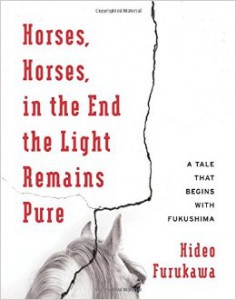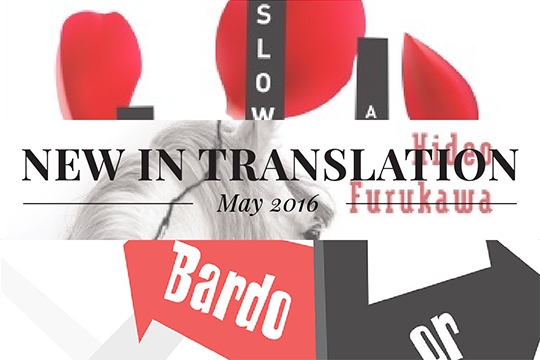Horses, Horses, in the End the Light Remains Pure: A Tale that Begins with Fukushima by Hideo Furukawa, translated from the Japanese by Doug Slaymaker with Akiko Takenaka, Columbia University Press, 2016
Review by Justin Maki, Assistant Managing Editor.

The nuclear disaster at Fukushima Daiichi power plant—triggered by the magnitude-9 offshore earthquake and tsunami that devastated northeastern Japan on March 11, 2011—created a rift in the country over its use of nuclear power and a major loss of faith in plant operators TEPCO as well as national and local government. Many protested the 2015 resumption of nuclear operations across the country, claiming safety regulations remained inadequate and that the government had rushed to cover up past failures rather than making honest efforts to learn from them. In light of this recent example of the world’s “tradition of nuclear forgetting,” as Robert Jacobs puts it, “we have to do more than remember Fukushima, we have to learn how to remember Fukushima.”
Hideo Furukawa’s newly-translated Horses, Horses, in the End the Light Remains Pure: A Tale that Begins with Fukushima offers some hope in this capacity. Written in the first months after the triple disaster struck, the Fukushima native’s literary response works to complicate and deepen what it means to “remember” an afflicted region. Rather than engage in only the personal side of remembering (his own childhood in the area and his relatives with contaminated farms are both kept to rather brief passages), Furukawa brings the reader into contact with the region in a variety of ways by using multiple genres—literary reportage, imagined scenes, alternate history—and perhaps most notably by invoking Gyuichiro Inuzuka, a character from one of his earlier novels, whose voice and “memories” of northeastern Japan appear at various moments throughout the book.

